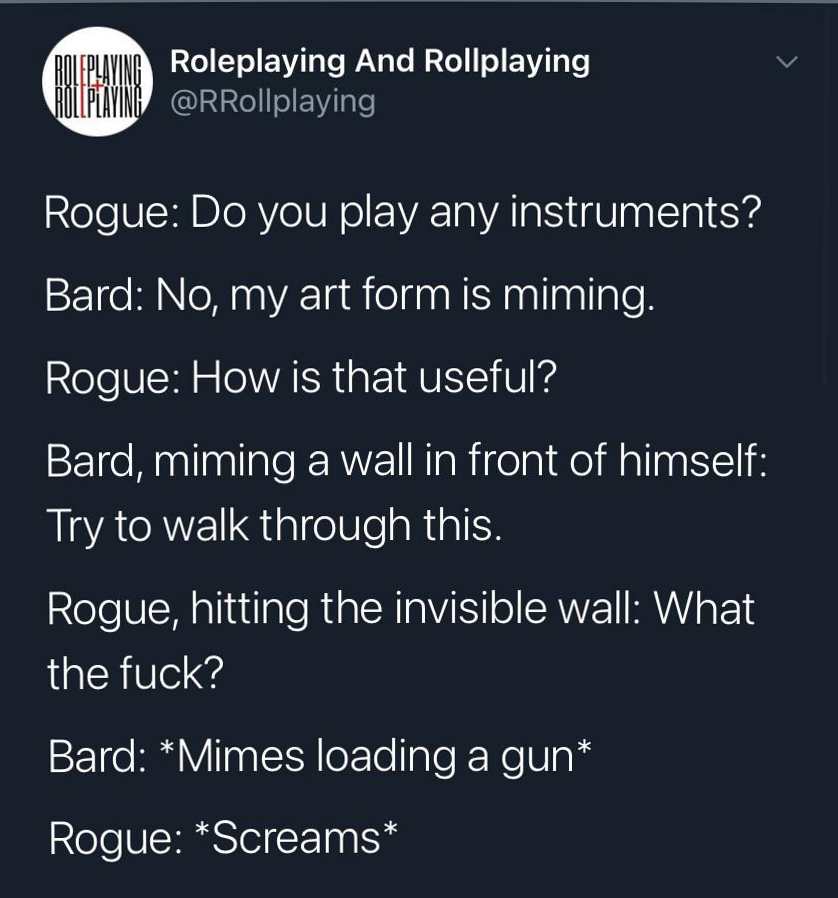this post was submitted on 14 Jul 2024
681 points (96.7% liked)
RPGMemes
10146 readers
129 users here now
Humor, jokes, memes about TTRPGs
founded 1 year ago
MODERATORS
you are viewing a single comment's thread
view the rest of the comments
view the rest of the comments

From what I understand antimatter and matter react at the individual particle level and as far as we can tell they need their corresponding particle to react with.
i.e. Positron - Electron Proton - Anti-proton Neutron - Anti-Neutron
The charged ones would likely have little trouble finding their counterparts. Especially the positrons, maybe electron shells would prevent anti-protons from getting to protons.
I'm curious how stable anti-neutrons are in a matter world (and how free neutrons behave, for that matter). Does anything stop them from just joining the first atom they happen to get close enough to? And how long before they get close enough to an atom if they do, in say Earth's atmosphere?
Yes, for the (anti-)electrons. Antiprotons and neutrons should be able to annihilate as well, and vice versa. They are composite particles made of (anti) up and down quarks, so processes like antiproton (anti u anti u anti d) + neutron (udd) -> photons + pi- (anti u d) ( + pi0 maybe) could happen. The pions are short-lived particles called mesons, made of a quark and an antiquark.